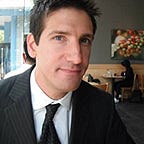How Education Helped End Slavery
Knowledge is power. I’m sure that I must have heard this phrase a dozen of times growing up. My mother stressed the importance of education and explained to me that it was a man’s intelligence that made him attractive to the opposite sex — and it’s a man’s intelligence that will help map his success throughout the obstacles of life. My mother was illiterate and could not read or write. But what she lacked in book smarts, she more than made up in wisdom. She knew enough about life to know that education was the key to open any door of opportunity. When reading through the slave narrative of Fredrick Douglass’s life, and Richard Wright’s memoir “Black Boy,” I get a sense of what my mother was trying to instill in me and about the importance of reading. There was a bit of shame and powerlessness in my mother’s eyes, every time she was put in a situation where being uneducated held her back. I feel the same could be said of these black men and women of the past, who despite a longing to learn, were often deprived of an education. Literacy brought with it an understanding of the larger world. Frederick Douglas and Richard Wright found ways to outsmart those that held them back, and realizing the importance of education, created some of the most remarkable works by African American writers in American history.
Frederick Douglass was a restless spirit, and was one who despised slavery. Young Frederick Douglass knew that this desire for a better life was only possible by learning what “white society” had tried so desperately to prevent him from doing, which was learning to read (Simkin). When Frederick went to work as a slave for Hugh Auld in Baltimore, Douglass’s new mistress, Mrs. Auld, refused to treat him poorly, and even decided she would teach him how to read. Her husband, however, knowing the effects of teaching a slave to read would cause unmanageability and disillusionment, prohibited her from doing so.
In Mr. Auld’s own words: “If you give a nigger an inch, he will take an ell. A nigger should know nothing but to obey his master — to do as he is told to do. Learning would spoil the best nigger in the world. Now,” said he, “if you teach that nigger how to read, there would be no keeping him. It would forever unfit him to be a slave (Douglass 29). When Douglass saw how Mr. Auld discouraged reading, it only gave Frederick more of a reason to learn. He knew there was a certain power to be had, and he believed it was his one chance at becoming free of slavery. “From that moment, I understood the pathway from slavery to freedom” (Douglass 29). Douglass decided he would teach himself how to read and write; this he did by tricking the white Baltimore street boys in disclosing their knowledge, and using the skills he picked up, to practice reading and writing. Frederick Douglass resisted what was forbidden, and eventually learned to read and write (Douglass 43).
Although Frederick could read, he often thought of it as a double edge sword. Frederick Douglass states, “It opened my eyes to the horrible pit, but to no ladder upon which to get out. In moments of agony, I envied my fellow-slaves for their stupidity. I have often wished myself a beast” (Douglass 35).
Much like Frederick Douglass, Richard Wright wanted to expand his knowledge of the world around him. The autobiographies of Frederick Douglas and Richard Wright are narratives of resistance. They talk about the forbidden knowledge of books, and how the act of obtaining that knowledge could have cost them their lives. Both, Frederick and Richard use clever ways to trick people in to giving them what they want. In Richard Wright’s case, he wanted books from a library. He achieved this in an almost genius way, by forging a white man’s name and writing the word “nigger” in there to make it seem more credible. In his exact words, “Dear Madam: Will you please let this nigger boy have some books by H. L. Mencken” (Wright 142).
The more Richard read, the more he became aware of the situations around him. He could use words as weapons, and the more he sharpened his literary mind, the more dangerous his weapon became. Knowledge allowed Frederick Douglas and Richard Wright to see the world through the eyes of an educated white man, which was forbidden at the time, especially in the south. This knowledge gave them a powerful voice to write about their views on everything from Jim Crow laws to segregation. With their knowledge, they spoke for those who had no voice. Frederick Douglass and Richard Wright defied what society expected of them, and because they did, they went on to be well respected writers and thinkers. It is through their resilience that they lived to be role models to millions and that is why many students and scholars still study their work to this day.
Works Cited
Douglass, Frederick. Narrative in the Life of Frederick Douglass: An American Slave. Boston, 1845. 26 March 2018.
Simkin, John. Education of Slaves. January 2015. 26 March 2018.
Wright, Richard. “Black Boy.” Henry Louis Gates, Valerie Smith. The Norton Anthology Of African American Literature. third. Vol. 2. New York *London: Norton, 2014. 142. book. 26 March 2018.
